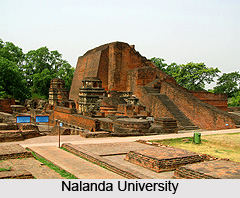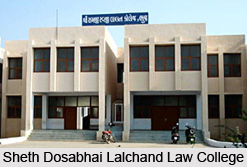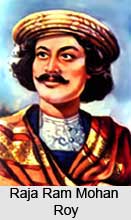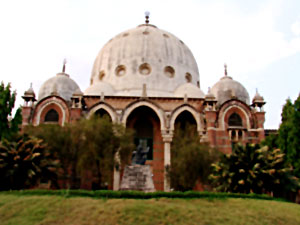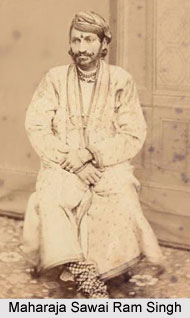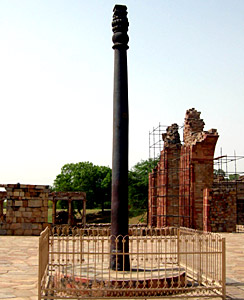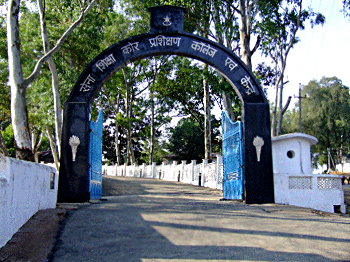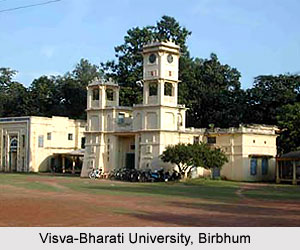 Visva Bharati is a Central University that is located in the twin towns of Santiniketan and Sriniketan in West Bengal. It was founded by Rabindranath Tagore. Visva Bharati, means the communion of the world with India. Till independence it was a college. Post independence, in 1951, the institution was given the university status and was renamed Visva Bharati University.
Visva Bharati is a Central University that is located in the twin towns of Santiniketan and Sriniketan in West Bengal. It was founded by Rabindranath Tagore. Visva Bharati, means the communion of the world with India. Till independence it was a college. Post independence, in 1951, the institution was given the university status and was renamed Visva Bharati University.
The origins of the university date back to 1863 when Debendranath Tagore, the zamindar of Silaidaha in East Bengal, was given a piece of land from Babu Sitikanta Sinha, the zamindar of Raipur. Initially the ashram was called Brahmacharya Ashram, which was later renamed Brahmacharya Vidyalaya. In 1901 Rabindranath Tagore, his youngest son established a co-educational school inside the ashram premises.
On 23 December 1921 Tagore started the college formally with proceeds from the prize money of the Nobel Prize he received in 1913. The college also became a centre of Brahmo learning at that time. It was granted full university status in May 1951 by the Indian Government.
Administration of Visva Bharati
The officials of the university include the paridarshaka or visitor acharya (chancellor), and the upacharya or vice chancellor. The paridarshaka of this university is the president of India, while the acharya is the prime minister. The university is run by Executive Council or Karma Samity which is chaired by the acharya. The institutes and departments are located both Santiniketan and Sriniketan.
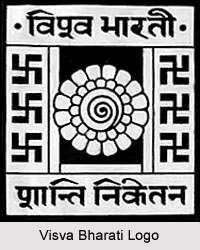 Institutes under Visva Bharati
Institutes under Visva Bharati
The Visva-Bharati University has several institutes and colleges under its supervision for undergraduate, postgraduate and doctoral studies. Vidya Bhavana is the Institute of Humanities, Shiksha Bhavana is the Institute of Sciences, Palli-Shiksha Bhavana happens to be the Institute of Agricultural Sciences and Binay Bhavana is the Institute of Education. However, Visva-Bharati University is particularly known for the Kala Bhavana or Institute of Fine Arts. It has a museum under its management, which is called Rabindra Bhavana in the Uttarayan complex, which is the residence of Rabindranath Tagore.
Patha Bhavana, Shiksha Satra (two elementary and secondary schools) and Uttar Shiksha Sadana (a higher secondary school) are the four schools under the supervision of Visva-Bharati University. They confer certificates of the university. Apart from these educational segments, Visva-Bharati University also has Bengal Institute of technology and Management (BITM,Santiniketan), IIIT Kolkata associated with it. Thousands of national and international students come in Visva-Bharati University to acquire various educational degrees. The children studying in lower classes enjoy learning their lessons under the shadow of the trees, which is a unique tradition in Santiniketan.
The university`s library is divided into the central library in Santiniketan and the Granthan Vibhaga in Kolkata.
Cultural Fests of Visva Bharati
Basanta Utsab (Spring Festival) is identified with holi, which is held on the grounds in front of Patha Bhavana. Poush Mela (Winter Fair) is the annual winter fair which is held every Poush which coincides with December. It is held on Purono Melar Maath opposite the ashram and next to the Uttarayan complex, as well as on Melar Maath (Bhubandangar Maath). The fair allows the local people of Birbhum and outlying districts to come and exhibit and sell their wares. Jatras are staged and Bouls perform at the fair.
